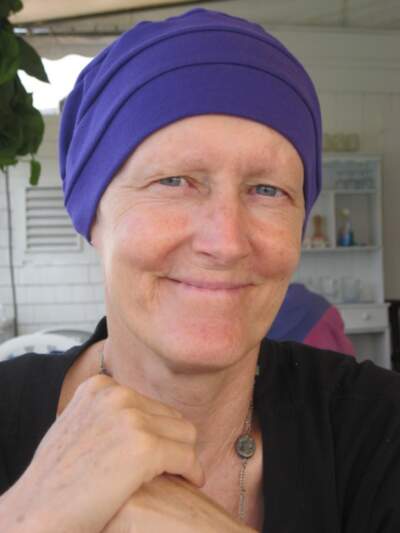Advertisement
Commentary
More people are living longer with cancer. Stop treating us as ‘dead on diagnosis’

The rare, aggressive form of breast cancer I’ve survived for 12 years has struck another victim. This time, a fictional one: Lois Lane from the series, “Superman and Lois” on The CW.
For most people, this will be the first time they hear about inflammatory breast cancer (IBC). For me, it’s a reminder of my diagnosis with a disease that I feared would kill me. Yet here I am, one of more than 18 million cancer survivors in the U.S. marking June as National Cancer Survivor Month.
When I was diagnosed with IBC in 2011, I had never heard of it. I was unaware that its symptoms (redness, swelling, rash, skin thickening) spelled cancer. I had never met, as far as I knew, anyone who had it. Where are all the others? I wondered. I Googled the disease, read “dire,” “devastating,” and “grim prognosis,” and shut down my computer. I was alone.

Since then, I’ve encountered IBC in books and entertainment a few times. Early in my treatment, I picked up what I thought was an escapist summer novel. Right away the main character was diagnosed with breast cancer. But that wasn’t the worst part. The doctor in the novel reassured his patient by saying something like, “This isn’t the cancer that killed your sister. She had inflammatory breast cancer.” What? It was my first encounter with IBC outside my own, and the character was already dead.
Years later, in 2017, “Grey’s Anatomy” featured a short-lived (like the character) plot line in which the mother of a main character was diagnosed with IBC. She only lasted a few episodes. The writers must have Googled and gotten the same “grim prognosis” link that I did.
It was beginning to look like IBC served the literary purpose of Chekhov’s gun. Writers know that if a pistol appears early in a story, it has to be fired before the story is over. If IBC makes an appearance, someone’s going to end up dead.
Now it seems that IBC is having a bit of a day. In PBS’s current season of “Call the Midwife,” IBC strikes Lillian, a recently introduced character who is pregnant. All I can say — based on my admittedly limited sample — is don’t get too attached to Lillian.
And now there is Lois Lane. Stage III IBC — because IBC is always at least stage III by the time it’s diagnosed. There’s typically no lump, so it doesn’t show up on a mammogram. Even Superman, with his x-ray vision, couldn’t have detected Lois’s cancer.
I’m not surprised that the show’s writers use IBC as a plot point. It is a dramatic diagnosis, after all. What surprises me is that they gave it to Lois Lane. A main character. Presumably, they will let her live.
I don’t expect “Superman and Lois” to focus on education about IBC symptoms, although education is desperately needed. And the show isn’t likely to increase funding for medical research.
But “Superman and Lois” will do one thing. It will show a character who is living with IBC.
Today, IBC is still serious, but like more and more cancers, it can be survivable.
Today, IBC is still serious, but like more and more cancers, it can be survivable. According to the American Society of Clinical Oncology, the relative five-year survival rate for IBC is 40%.
In fact, the number of people surviving almost all cancers is growing. And progress is focused not only on those with early-stage disease, as in the past, but on patients with metastatic cancers as well. The White House Cancer Moonshot has the mission of “ending cancer as we know it.” Can we do that? Not yet. But President Biden’s goal is to cut the death rate from cancer by at least 50% over the next 25 years.
And in the meantime, we can at least rethink how we talk about cancer and what stories we tell. People with IBC or any other cancer need and deserve stories that aren’t lazy, stories that don’t use illness as a cheap plot point, stories that don’t fire Chekhov’s gun and kill off a character after a quick Google search of “devastating diseases.”
Yes, we need stories that tell us that some of us die — too many and too young. But we also need stories that remind everyone that some of us live.
Most of us grapple with illness at some point in our lives. The stories we tell should grapple with it, too. We are not expendable minor characters. We are more than a tragic plot twist, a way to raise the stakes. The stakes are already too high. Long live Lois Lane.
